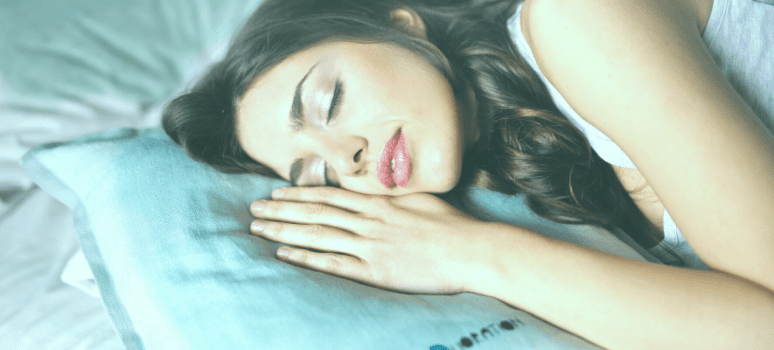
In our current lifestyle "doing nothing" seems difficult. However, sleep is not only necessary, it is one of the habits that we must improve to ensure good all-round health.
What role does rest play in your life: do you go to bed at the edge of activity or do you prepare yourself for rest little by little? Sometimes sleep is considered more of an obligation than a necessity. We lack hours in the day and We only sleep because we are exhausted, but doing so is wrong: we are acting against our health.
Many people respect their rest and sleep hours and do not fill their day with activity or stay up late watching series. In this way they manage to wake up well and perform well during the day. Y These are not the only implications of restful sleep.
While we sleep, our body is in full activity - so much so that it can burn around 60 calories every hour - and we can burn up to 60 calories every hour. biological processes remain active to repair tissues, restore body functions or balance central nervous system processes, among other activities.
The health risks of poor - or too little - sleep
Phases 3 and 4 of sleep, known to be those in which sleep is deep, glucose metabolism decreases and the pancreas regulates the level of insulin in the blood, so that the body is able to regulate the level of insulin in the blood. Getting a good night's sleep is especially important for people with diabetes.
But not only that, getting a good night's sleep also prevents us from suffering from this disease. In fact, the quality of sleep has an influence on the secretion of leptin, a satiety hormone whose regulation is associated with obesity.
Sleep also takes care of our heart. It influences blood pressure by increasing the level of stress hormone in the blood. It is also linked to the likelihood of heart failure. And even high cholesterol.
Those who have trouble falling asleep most nights are 45 per cent more likely to have problems falling asleep than those who do not. risk of suffering a myocardial infarction than people who rest as soon as they put their head on the pillow.
The immune system also depends on sleep as it operates on a light/dark cycle. A sleepless night activates this system and this, in the long term, can contribute to the onset of inflammatory and autoimmune diseases. In addition, it is believed that an optimally functioning immune system protects us better against germs and bacteria.
Moodiness is not the only emotional consequence of sleep deprivation. In fact, poor sleep is linked to depression and anxiety as stress hormones are constantly released.
In this review of pathologies that can be prevented with restful sleep, we must not forget premature ageing. In this article we explain how reduced melatonin secretion accelerates the ageing of skin and brain cells. In addition, natural collagen production is reduced, giving our skin a more aged appearance.
Within the treatment of Biosalud Day Hospital we offer you therapies to achieve quality sleep and others to repair the effects of too few hours of sleep or poor sleep, on health.
What can we do to get a good night's sleep?
Sleep is restful when the body is able to perform its functions and we do not ask it to overwork itself. That is why, it is important to avoid large meals or alcohol consumption two hours before bedtime. In fact, any food that is more difficult to digest or that we find "stronger" should be eliminated from the evening meal.
The stimulant use such as coffee or tea should also be controlled. Each person knows how they feel and at what time of the day they should stop consuming these drinks, but in any case, it is recommended to avoid them in the afternoon and especially when it is close to bedtime.
Physical exercise makes us tired and helps us sleep well, but it also activates our organism. Running or training in the late afternoon or evening at high intensity speeds up our heart rate and promotes the release of adrenaline. That is why we need to combine two factors: the intensity of the exercise and the time between the end of the workout and going to sleep. So Sport? Yes, but better at any other time of the day if we're talking about getting a good night's sleep.
The temperature of the room and bedding or pyjamas should be comfortable but not too hot or too cold to relax in. If you use a good duvet in winter, you don't need to keep the heating on and it is also a good idea to lower the blinds to prevent street light or the first rays of sunlight from waking you up early.
And what about thehe mobile devices? The last thing we look at before we close our eyes and the first thing we see when we open them is our mobile phone and we are unaware that this habit is damaging our health. Not to say that the phone should be out of the room, or switched off, and notifications silenced. They are "sleep stealers"..
The luminescence of the screen can trick our bodies and alter the rate of melatonin secretionthe sleep hormone. But they also make us take longer to go to sleep and disrupt our sleep rhythm.

